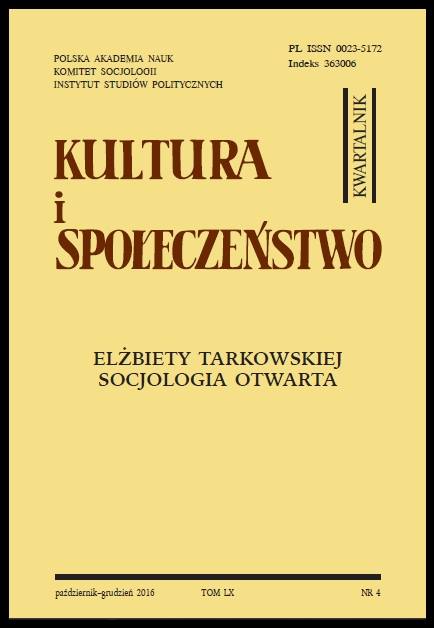Kultura i niepewność
Culture and Uncertainty
Author(s): Elżbieta TarkowskaSubject(s): Sociology, Social history
Published by: Instytut Studiów Politycznych PAN
Keywords: culture; kultura; uncertainty; niepewność; contemporary world; współczesny świat; Polish society; społeczeństwo polskie
Summary/Abstract: This article concerns uncertainty, which is considered by many social theorists (for instance, Zygmunt Bauman, Ulrich Beck, Daniel Bell, Eric Hobsbawm) to be a characteristic trait of the contemporary world. Uncertainty is produced by rapid, multidimensional changes in the conditions around us—by their instability and unpredictability—and by a lack of future vision. Continual change becomes an element of everyday life. Culture understood as a collection of permanent meanings, norms, and values loses its ordering function—it no longer serves to elucidate the world; the past does not provide helpful examples. There is an expansion of mutability, a multiplicity of possible choices, and an excess of information—which paradoxically, like its lack in an isolated society, is a cause of uncertainty, fear, and presentist thinking. In Polish society, these phenomena are strengthened by tradition and the sense of economic insecurity accompanying the systemic transformation.
Journal: Kultura i Społeczeństwo
- Issue Year: 60/2016
- Issue No: 4
- Page Range: 43-53
- Page Count: 11
- Language: Polish

